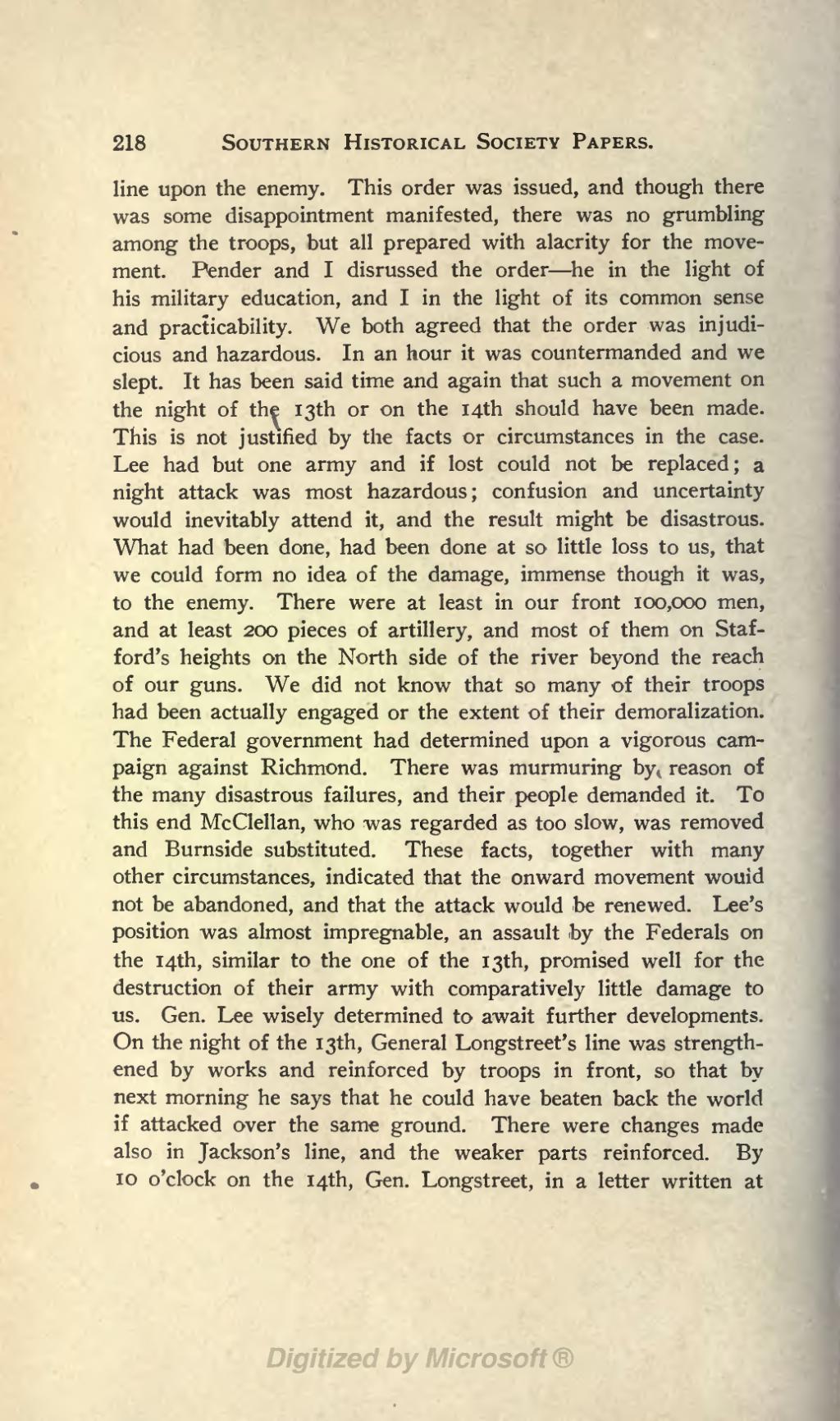line upon the enemy. This order was issued, and though there was some disappointment manifested, there was no grumbling among the troops, but all prepared with alacrity for the movement. Pender and I discussed the order—he in the light of his military education, and I in the light of its common sense and practicability. We both agreed that the order was injudicious and hazardous. In an hour it was countermanded and we slept. It has been said time and again that such a movement on the night of the 13th or on the 14th should have been made. This is not justified by the facts or circumstances in the case. Lee had but one army and if lost could not be replaced; a night attack was most hazardous; confusion and uncertainty would inevitably attend it, and the result might be disastrous. What had been done, had been done at so little loss to us, that we could form no idea of the damage, immense though it was, to the enemy. There were at least in our front 100,000 men, and at least 200 pieces of artillery, and most of them on Stafford's heights on the North side of the river beyond the reach of our guns. We did not know that so many of their troops had been actually engaged or the extent of their demoralization. The Federal government had determined upon a vigorous campaign against Richmond. There was murmuring by reason of the many disastrous failures, and their people demanded it. To this end McClellan, who was regarded as too slow, was removed and Burnside substituted. These facts, together with many other circumstances, indicated that the onward movement would not be abandoned, and that the attack would be renewed. Lee's position was almost impregnable, an assault by the Federals on the 14th, similar to the one of the 13th, promised well for the destruction of their army with comparatively little damage to us. Gen. Lee wisely determined to await further developments. On the night of the 13th, General Longstreet's line was strengthened by works and reinforced by troops in front, so that by next morning he says that he could have beaten back the world if attacked over the same ground. There were changes made also in Jackson's line, and the weaker parts reinforced. By 10 o'clock on the 14th, Gen. Longstreet, in a letter written at
Page:Southern Historical Society Papers volume 40.djvu/222
This page has been validated.
218
Southern Historical Society Papers.
